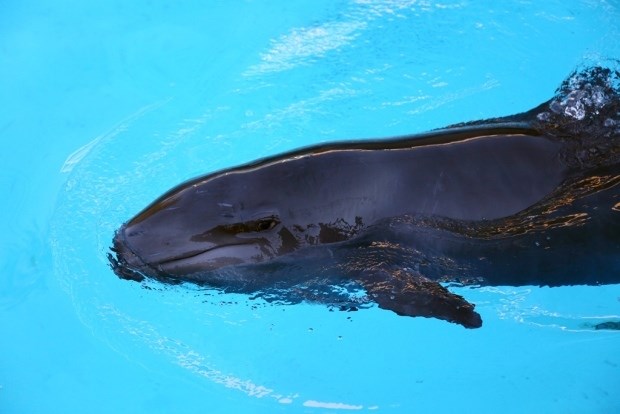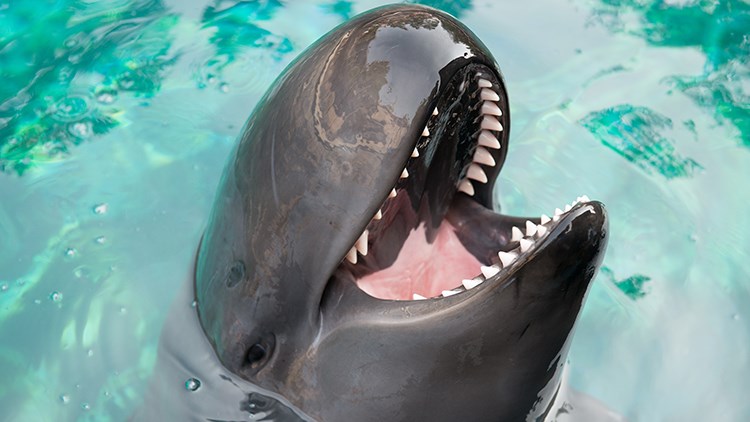It was the right thing to do. You know it and I know it. Vancouverites can now exhale with relief and move forward with a clean civic conscience: no more new whales at the Vancouver Aquarium.
In case you missed this whale of a tale, last week, the Vancouver park board courageously voted six-to-one to ban new cetaceans (whales, dolphins, and porpoises) from being brought in to the Vancouver Aquarium.
The remaining three (a false killer whale, a porpoise and a dolphin) will be “allowed” to live out their lives at the aquarium, according to news outlets.
The minor but very vocal public outcry against the park board is misguided. The defensive rhetoric by Vancouver Aquarium officials is offensive.
Staff and supporters at the Aquarium whine that the ban will adversely hamper their Marine Mammal Response Program (which mostly deals with harbour seals). Their rare shining star is the captive Chester, the false killer whale, “rescued” on Chesterman Beach on the West Coast of Vancouver Island. It was a miracle that he lived. It’s depressing that he has to live out his life in a tank.
And therein lies the hypocrisy of the rescue program. If the animal is held captive for the rest of its life, what’s the point?
Helping stranded whales rejoin their families in the wild is one thing. Exploiting them in cages for the viewing public is entirely another. We have no right to do that. That is not humane, and it’s no longer about public awareness.

UBC professor Dr. Michael Seear aptly pointed out in the Vancouver Sun that “every small child knows about dinosaurs without ever having seen one — captive animals are not essential for education.”
Mark Leiren-Young brilliantly points out in his 2016 book, The Killer Whale Who Changed The World, that humans have spent an inordinate amount of time obsessed with finding intelligent life on other planets, and yet there are highly intelligent beings on this planet which we tend to forsake: the cetaceans.
Don’t buy the analogy? Then check this out: a four-year-old orca's brain is already five times the size of an adult human brain. Dolphins and whales have complex languages and traditions that get passed down generation after generation (that’s something we humans call “culture”). We’ve never been able to figure out whale languages, which are distinct from pod to pod, as different as English and Japanese, yet they can seemingly figure out our gibberish pretty quickly. And they're a matriarchal society where grandmas rule. They've been on the planet a hell of a lot longer than us, too.
The problem, which Leiren-Young pointed out to me, is in the case of a human-caused disaster like a major oil spill. What to do with affected cetaceans that need to recover? What to do with whales like Chester, beached and supposedly too young to learn the culture and tradition of his pod? Maybe the answer is a private sanctuary, a sea pen somewhere off the north coast of Vancouver Island, where the whales can recover without their privacy being invaded by millions of humans.
The era of whales at the Vancouver Aquarium is over. We should now be focussing our efforts and energies on making our ocean safer, cleaner and quieter for the cetaceans who call it home, so that we may long see their exhale where it belongs: in the wild.



